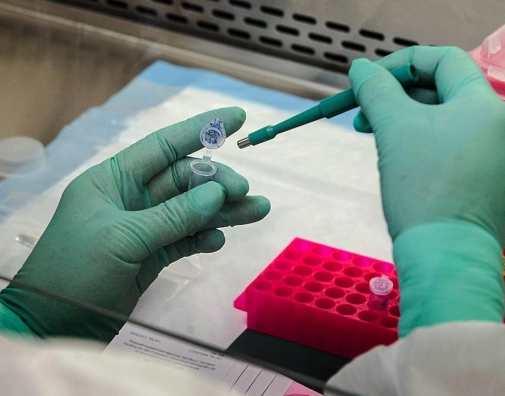
Genetics and Sleep: Why Your DNA Influences Your Rest

We often talk about the importance of good sleep, but rarely about what truly shapes how we sleep. If your nights feel chaotic despite a solid routine—or if you fall asleep the moment your head hits the pillow—your DNA might have something to do with it.
Heavy Sleeper or Light Sleeper? Your DNA Plays a Role
Some people need nine hours of sleep to function. Others feel refreshed after just six. For a long time, we thought this was simply a matter of lifestyle. But science is telling us otherwise: your genetic makeup plays a key role.
Researchers have identified several genes that influence the duration, depth, and rhythm of sleep. The PER3 gene, for instance, is involved in chronobiology—it affects your internal clock and determines whether you’re more of a morning or evening person. Other genes, like ABCC9, can influence how many hours of sleep you need, regardless of how tired you feel.
In short, if your body doesn’t quite “follow the rules” of eight hours per night, it may not be bad sleep—it may just be your biology expressing itself.
Insomnia and DNA: What’s the Link?
Could your sleepless nights be written in your genes? Research has uncovered several genetic markers associated with an increased risk of sleep disorders, including insomnia and frequent nighttime awakenings.
A large-scale study in the UK, involving over a million participants, identified more than 50 genetic variants linked to trouble falling or staying asleep. These genes affect neurotransmitters like serotonin and GABA, which regulate stress, anxiety, and wakefulness.
That doesn’t mean you’re doomed to poor sleep if you carry these variants. But it does mean that your struggles with rest aren’t just a matter of willpower or lifestyle—they may be rooted in your DNA.
Using Your DNA to Sleep Better
The good news? Understanding your genetic profile can help you sleep better. With genetic predisposition tests—like those offered by Adnà—you can learn whether you carry markers linked to light sleep, frequent awakenings, or an evening chronotype.
Knowing this is like switching to personalized sleep mode:
💤 Are you naturally a night owl? Stop forcing yourself into early bedtimes. You may need to adjust your schedule to better match your internal rhythm.
💤 Prone to insomnia? You can focus on targeted solutions: stress management, specific nutrition, or supplements that support melatonin production—with guidance from a health professional.
💤 Light sleeper? Tailor your environment: blackout curtains, earplugs, and solid bedtime rituals can make a big difference.
Your DNA, Your Guide
At Adnà, we believe that knowing yourself leads to living better. A DNA test doesn’t replace medical advice, but it can be a powerful tool to understand your real needs—even at night.
You deserve a sleep routine that’s built around you. And sometimes, the answer is already inside you.
Your DNA has answers—even about your sleep.
Want to align your sleep habits with your genetic profile? Discover our genetic predisposition tests and start sleeping better, tonight.

“The website is easy to understand and the process very simple. The information I received will be invaluable for the rest of my life. I loved the experience and highly recommend!”
Other Journal: News
VIEW MORE


